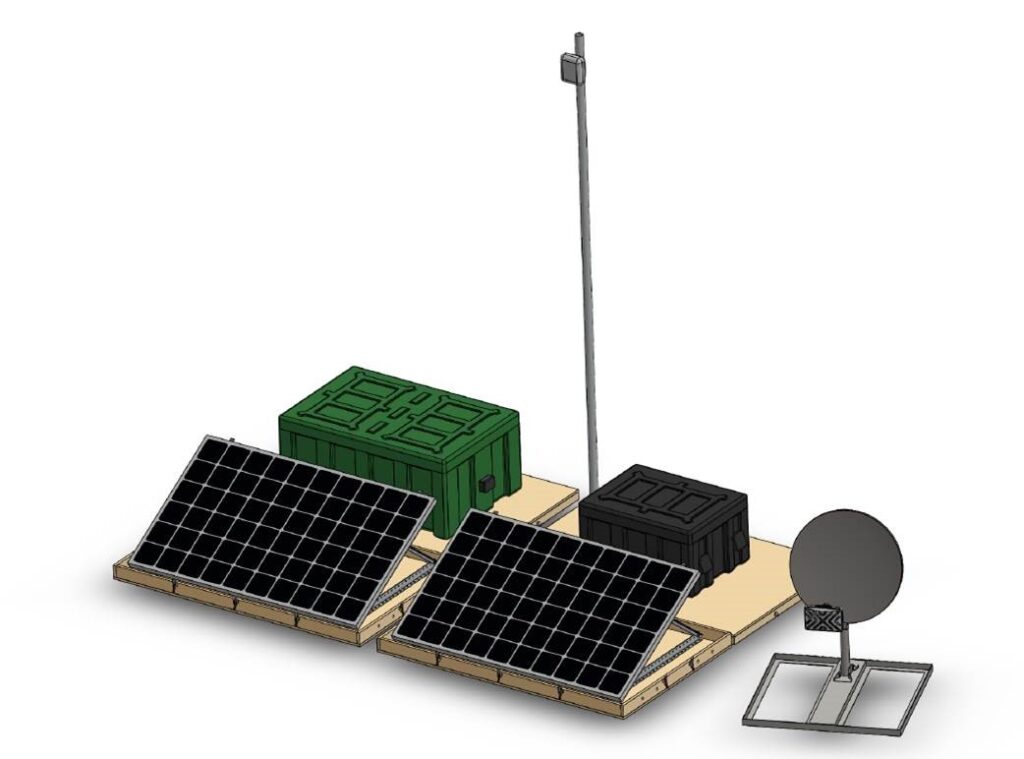May 13, 2020
Viasat lent its support to University of Arizona senior engineering students to help them create an Off-Grid Community Wi-fi Terminal to deliver internet access to remote locations. The initiative was part of a yearlong project for the students to fulfill the requirement for their Engineering Senior Design Day.
Viasat provided the students with an existing Community Wi-Fi terminal, and the students then designed and built an integrated power system in a portable package. The students designed their system to operate in difficult environments and be powered by renewable energy – all in a low-cost, rugged package.
“The Off-Grid Community Wi-Fi project is an effort in both social impact and technological advancement. It has been a pleasure to work with students who appreciate and value the need to bring relief to underserved communities and work hard to do so. Viasat’s ubiquitous goal to ‘connect the unconnected’ is well-reflected in this project and I am very optimistic that this innovation will be of benefit to those in need,” said Sarah Shepis, Viasat engineer.
Billions of people around the world still have little to no access to internet service. The reasons for this are many, but chief among them are cost and accessibility. Internet delivered via satellite offers a promising solution to these challenges. Recently, Viasat launched a new kind of satellite service aimed at more remote locations and poorly connected suburban and urban areas in Mexico. With Viasat Community Wi-Fi, a satellite antenna is installed at a central location in the town, typically at a small business. With the help of powerful Wi-Fi equipment, the signal is shared for over 500 yards around the access point installed on the building. Community members then pay a small amount to the local business owner for a code that allows them to get online with a set amount of time or data.
“The Community Wi-Fi product has already impacted many people across Latin America and the plan is to have the students’ off-grid innovation support those communities that exist outside the power grid,” said Omar Alam, Viasat engineer.
As Viasat looks to expand this service throughout Latin America, the company learned that it would be useful to have a completely “off-grid” version of the Community Wi-Fi system. This would use battery packs and alternate power sources to operate in areas without grid power, such as national parks or very remote villages. In addition, an off-grid system could rapidly provide critical connectivity to disaster-struck areas.
Together with the University of Arizona engineering seniors, the team made the vision a reality. The students were set to demonstrate the system they developed in May of this year, but unfortunately the event was cancelled due to COVID-19. The Viasat team is working to reschedule the demonstration for a future date.
View the students’ video presentation of their project here.






